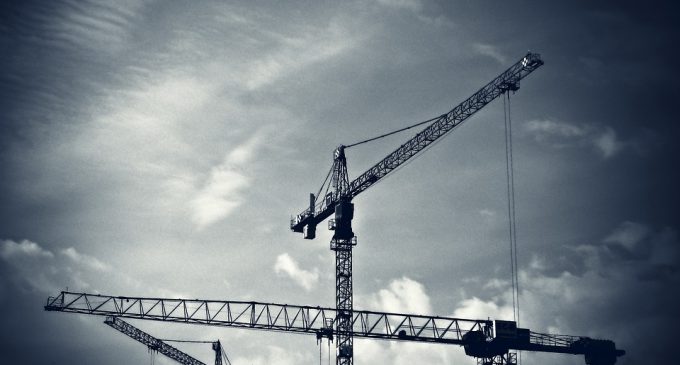Construction Activity Rises at Weakest Pace in Almost Six Years

At 51.4 in July, down from 53.1 in June, the Ulster Bank Construction Purchasing Managers’ Index® (PMI®) – a seasonally adjusted index designed to track changes in total construction activity – signalled a modest expansion of Irish construction activity. The rate of increase was the slowest in the current 71-month sequence of growth.
Commenting on the survey, Simon Barry, Chief Economist Republic of Ireland at Ulster Bank, noted that: “The latest results of the Ulster Bank Construction PMI survey indicate that Irish construction firms continued to report rising activity levels in July. However, the pace of activity growth lost further momentum last month to leave the rate of expansion at its slowest in almost 6 years. The sub-sector detail painted a mixed picture. Growth in commercial activity picked up to a 4-month high, but this was offset by weaker performances in civil engineering and in housing. Notably, the pace of residential activity eased to a 6-month low, albeit that housing – with its solid PMI reading of 55.7 still well above the expansion threshold of 50 – remains the fastest-growing sub-sector.
“Looking ahead, firms continue to anticipate increased activity levels over the coming 12 months as confidence about future prospects is being underpinned by expectations for stronger demand. However, optimism levels have continued to slip back from previous highs with the future activity index declining to its lowest level in over 6 years amid some reports that Brexit is having a negative impact on the outlook. More generally, after a 3-year period of particularly and exceptionally rapid expansion in 2016-18, a variety of official indicators (including output, investment and employment) have clearly signalled that the pace of growth in construction has cooled in the first half of this year. The July PMI results provide early, if still somewhat tentative, evidence of a further moderation in the sector’s performance early in the second half.”
Commercial sector sees growth quicken
For the seventh consecutive month, the housing sub-category recorded the fastest rise in activity of the three monitored sub-sectors in July. That said, the rate of expansion eased to a six-month low. Commercial activity also increased solidly over the month, with growth quickening to the fastest in four months. Meanwhile, civil engineering activity declined for the eleventh consecutive month and at the fastest pace since November 2018.
New order growth slowest since February 2015
Anecdotal evidence from panellists attributed the growth of activity to an upturn in new orders. Despite increasing solidly, the rate of increase eased to the slowest since February 2015. Firms indicated that increased market activity was the principal factor behind the expansion in new work during July.
Business confidence edges lower
In line with the slower rise in new business, employment growth in the Irish construction industry moderated to the weakest since March 2015. The expansion of workforce numbers was attributed to greater workloads.
Purchasing activity among Irish construction firms increased again in July. That said, the rate of expansion was modest and the slowest in the current 65-month sequence of growth. Anecdotal evidence from panellists indicated that firms had raised their input buying in response to greater customer demand.
On the price front, the rate of input price inflation quickened in July and was the fastest since April. Greater raw material prices (notably for steel and insulation) were stated by panellists as being behind the rise in cost burdens. Purchasing costs have increased on a monthly basis since September 2013.
Looking forward, sentiment among Irish construction firms remained positive during July. Around 31% of panellists expect activity to rise over the coming 12 months, due to greater customer orders and improving economic conditions. This was despite the overall degree of confidence edging down to a 74-month low, amid ongoing concerns over Brexit.







